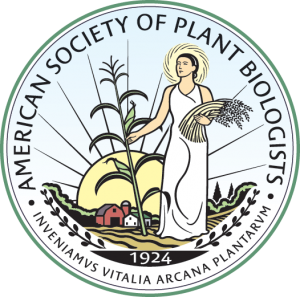ASPB and Open Peer Review

It’s #PeerReviewWeek18! What better time than now to blog about how two of ASPB’s journals (The Plant Cell and Plant Direct) have approached open peer review?
On August 29, 2018, Nature published a Comment titled “Publish Peer Reviews” (https://www.nature.com/articles/d41586-018-06032-w). This Comment references an open letter (http://asapbio.org/letter) signed by two of ASPB’s own: the Editor-in-Chief of The Plant Cell, Sabeeha Merchant, and the Editor-in-Chief of Plant Direct, Ivan Baxter. The letter also bears the signatures of those journals supporting some level of open peer review.
HOW and WHY did The Plant Cell and Plant Direct come to support open peer review?
When considering adopting open peer review for a journal, there are many questions to ask:
- What are the costs involved?
- What is required of the journal’s staff?
- What does the journal’s editorial board think?
- How will your organization define “open peer review”?
- Will sharing these reports be a condition of reviewers and/or authors of publishing in the journal?
- What are the journal’s competitors doing?
Plant Direct (https://onlinelibrary.wiley.com/journal/24754455; @PlantDirectJ) is an open access, sound science journal published by Wiley on behalf of the Society for Experimental Biology and the American Society of Plant Biologists. Ivan Baxter, Plant Direct’s Editor-in-Chief, said the following in response to why the journal supports open peer review:
“This is who we are, and this is what we are doing.”

Plant Direct posts peer review reports for each research article it publishes. Peer review reports are not completely open because reviewers remain anonymous. Peer review reports do not publish until a paper is accepted. Plant Direct chose to publish these reports for the following reasons:
- To provide transparency and a clear record re: publication decisions and how criteria are applied in this process
- To use as mentoring/teaching tools
- To change the culture of peer review; in theory, this open record allows progress to continue and be checked
Plant Direct’s peer review reports are not edited in any way. It is a condition for both authors and reviewers of the journal that all peer review reports, without exception, will be published. Wiley is developing tracking tools to evaluate downloads and usage of peer review reports.
Plant Direct uploads a peer review report as part of the article’s “Supporting Information,” as shown:

Following is a sample of actual Editors Comments from Plant Direct:

The Plant Cell announced its decision to adopt a form of open peer review in an October 2016 editorial by Editor-in-Chief Sabeeha Merchant (http://www.plantcell.org/content/28/10/2343). An excerpt from Dr. Merchant’s editorial reads:

“Reviewer anonymity will be strictly maintained. The reports will include the major comments from reviewers and the editors’ decision letters along with the authors’ response to reviewers for each submission of the manuscript (including original, revised, and previously declined versions), as well as a timeline documenting the path of the manuscript from submission to publication. The decision letters typically include the substance of comments from any post-review consultation among editors and reviewers.”
The Plant Cell made the decision to support open peer review for the following reasons:
- To demonstrate transparency in the review process and the criteria used for evaluating papers
- To use for journal club discussions
- To use as training tools for students/post-doctoral researchers and professionals in the early stages of their careers
In her editorial, Dr. Merchant stated that feedback and access/download statistics would be monitored for a period of 2 years as a pilot project (ending in October of 2018). Although feedback suggests that these reports are being used, we at ASPB continue to work with HighWire, our online content host, to determine usage statistics. The challenge has been that the peer review reports are included with all other Supplemental Data, so it is difficult to target peer review report usage on its own.
The Plant Cell uses the following procedures to handle open peer review:
- Invitations to review a manuscript include information about the peer review report
- Reviewers remain anonymous in peer review reports (the editorial board believes that anonymity is integral to this process)
- After manuscript acceptance by the reviewing editor, a peer review report is prepared by the science editor handling the paper (WITH author approval). Science editors are paid per report (compilation, formatting, posting of report)
- Reports follow a standard format and are lightly edited (to remove miscellaneous correspondence, for instance); authors APPROVE their reports
What does a peer review report look like in The Plant Cell?

Please reach out to me (jregala@aspb.org; @JRegala_ASPB) with your questions and thoughts.
Jennifer Regala, Managing Editor, The Plant Cell and Plant Physiology

